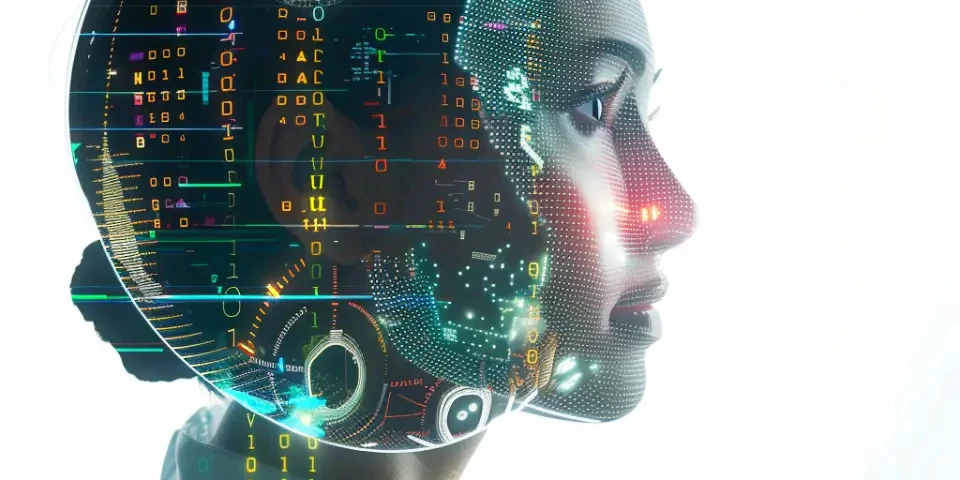Unlocking the Power of AI How Intelligent Algorithms Are Transforming Healthcare
In recent years, the field of healthcare has witnessed a significant transformation with the integration of AI-powered intelligent algorithms. These algorithms, capable of analyzing vast amounts of data and identifying patterns, are revolutionizing diagnostics, treatment, and patient care. Let's explore the ways in which AI is revolutionizing healthcare.
1. Enhanced Diagnostics
Artificial Intelligence algorithms excel at analyzing complex medical data, including medical images, patient history, and laboratory results. They can detect patterns and identify subtle variations that might elude human observers. By leveraging AI, healthcare providers can improve diagnostics precision and accuracy, leading to earlier detection and treatment of diseases such as cancer, cardiovascular disorders, and neurological conditions.

AI-powered diagnostic tools like IBM Watson for Oncology and Google's DeepMind are already assisting doctors in analyzing patient data and providing valuable insights for personalized treatment plans.
2. Predictive Analytics
AI algorithms have the capability to predict disease progression and patient outcomes based on historical patient data. By analyzing large datasets, these algorithms can identify risk factors and warning signs, allowing healthcare professionals to intervene before serious complications arise. Predictive analytics can be especially useful in managing chronic conditions like diabetes, heart disease, and asthma.
3. Personalized Medicine
The era of one-size-fits-all healthcare is slowly being replaced by personalized medicine, thanks to AI algorithms. By integrating patient data, genetic information, and treatment outcomes, AI can generate personalized treatment plans tailored to an individual's unique characteristics. This approach promises to enhance treatment effectiveness and reduce adverse reactions, ultimately improving patient outcomes.
4. Robotics and Automation
AI-powered robots and automation systems are transforming various aspects of healthcare, from precision surgeries to medication management. Robotic surgical systems like the da Vinci Surgical System enable surgeons to perform complex procedures with enhanced precision, minimizing invasiveness and speeding up recovery times. Automation systems in pharmacies and hospitals can streamline medication dispensing processes, reducing errors and improving efficiency.
5. Virtual Assistants for Patient Care
AI-powered virtual assistants like Amazon's Alexa and Apple's Siri are increasingly being utilized in healthcare settings to assist patients with information and appointment scheduling. These virtual assistants can provide reminders for medication dosage, suggest healthy habits, and even monitor vital signs through wearable devices. By facilitating self-management and proactive care, virtual assistants contribute to improved patient engagement and overall wellness.
6. Healthcare Data Security
The integration of AI in healthcare brings forth the need for robust data security measures. AI algorithms rely on vast amounts of patient data to function effectively, making data security paramount. Advanced encryption techniques, secure cloud storage systems, and strict access controls are crucial to maintain patient confidentiality and protect sensitive medical information from breaches.
7. Cost Reduction and Efficiency
AI algorithms and automation systems have the potential to reduce operational costs and enhance the efficiency of healthcare delivery. By automating routine administrative tasks like appointment scheduling and medical billing, healthcare providers can free up valuable time for medical professionals to focus on patient care. AI-powered algorithms can also optimize resource allocation, enabling hospitals to manage patient flow and bed occupancy more effectively.
8. Ethical Considerations
As AI becomes more sophisticated and integrated into healthcare, ethical considerations become increasingly important. Ensuring transparency in AI decision-making processes, avoiding bias in algorithms, and maintaining patient autonomy are critical aspects that need to be addressed. The development of ethical guidelines and continuous monitoring of AI systems are necessary to ensure patient trust and ethical practice in healthcare.
Common FAQs:
Q: Can AI fully replace human healthcare professionals?
A: Although AI is transforming healthcare, it is not meant to replace human healthcare professionals. AI acts as a powerful tool to augment and assist healthcare professionals in their decision-making process, improving efficiency and precision of care delivery.
Q: Are there privacy concerns with AI in healthcare?
A: Privacy concerns are a valid consideration when implementing AI in healthcare. Strict data protection protocols and compliance with privacy regulations are necessary to ensure patient confidentiality and maintain trust.
Q: Is AI in healthcare only accessible to large healthcare institutions?
A: The accessibility of AI in healthcare is expanding rapidly. While large institutions may have more resources to implement AI systems, there are also affordable AI-powered tools and platforms available for smaller healthcare settings to leverage the benefits of intelligent algorithms.
References:
1. Johnson, K., Yao, L., & Madey, G. (2019). AI in healthcare: A systematic review of literature. Artificial Intelligence in Medicine, 101, 101731.
2. Topol, E. J. (2019). High-performance medicine: the convergence of human and artificial intelligence. Nature Medicine, 25(1), 44-56.
3. World Health Organization. (2020). Ethics and governance of artificial intelligence for health. Retrieved from https://www.who.int/artificial-intelligence/ethics/en/
Explore your companion in WeMate